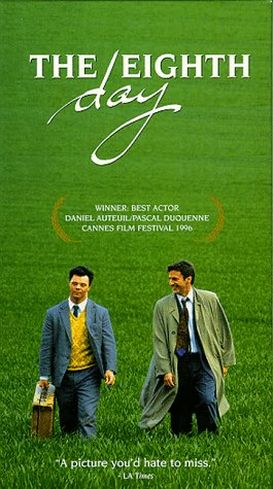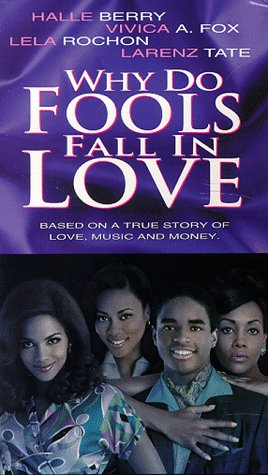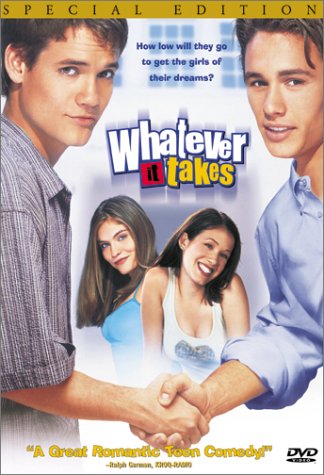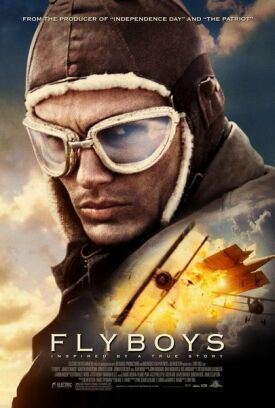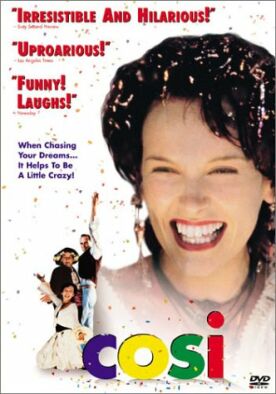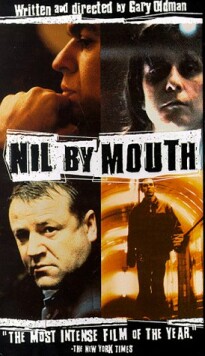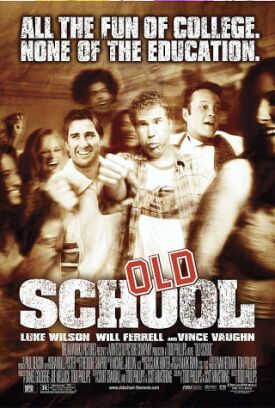Huitième Jour, Le (The Eighth Day)
Le Huitième Jour(The Eighth Day) by Jaco Van Dormael begins with a somewhat whimsical attempt to portray the world as seen through the eyes of Georges (Pascal Duquenne), a Downs syndrome sufferer. Like Genesis (the pop group of the same name makes an appearance later in the film), it begins “In the beginning. . .” when, we are told, “there was nothing. . .” (nothing is represented, rather wittily as TV static) “. . .only music.” Suddenly the TV screen comes into focus. A stage-Mexican called Luis Marinaro in sequinned toreador outfit, huge sombrero and flashing white teeth is singing about “sunny Mexico.” Then we proceed through the days of the week. On the first day He made the sun, on the second the earth and sea. On the third he made records (shot of Georges listening to an English language record), on the fourth television (Georges imagines himself on TV, a baby on the steppes of Mongolia). On the fifth day, He made grass, on the sixth men, in all colors, and “on the seventh day He rested.” Then comes up the title, “The Eighth Day,” over a gorgeous cloud and sky shot.
Thus to skirt round the edges of being patronizing, even to make fun of what, until very recent times, used to be called “mongolism”—and with a real-life sufferer from the syndrome—is admirably audacious film-making by Dormael, a jokester and author of what I consider to be the post-modern classic, Toto the Hero. But into the midst of this riot of images he inserts a quasi-realistic story. Daniel Auteuil plays Harry, a salesman employed by a bank who is obviously a rising star in business but such a workaholic that he has completely destroyed his family life. His wife, Julie (Miou-Miou) and two little girls (played by Van Dormael’s own children) have left him, and he is too busy even to remember to meet them when they come to Brussels to visit him. They spend hours at the train station and then sadly get back on the train to return to mother.
Harry feels awful about it, of course, and tries to apologize, but Julie is having none of it. And, worse, neither are the girls, who don’t want to see him anymore. Driving back from his fruitless attempts to make it better, at night, in the rain, he hits and kills a dog on the road. The dog is the companion of Georges, who has gone walkabout from the institution where he lives and taken the dog with him. Harry puts the dead dog in the back of his station wagon and gives Georges a lift without knowing where to take him. Georges then becomes, through a series of comic misadventures together, Harry’s dog. Or his child. The boring banker, through him, is able to find his own inner child—which means, as it so often does in the movies, that he learns how to be a mensch and to enjoy life.
In other words, it is all a little too easy. There’s nothing wrong with rediscovering the joy of living, but the attempts—as moving in their way as Auteuil’s splendid portrayal of the agonized father—to get Georges’s sister to take responsibility for him and the hostility of her husband (though their kids are of course delighted by “Uncle Georges” ) remind us that you cannot live at that level except at rare moments of exaltation. Georges and some other institutionalized idiots steal a van and drive with Harry to the seaside town where Julie and the girls are living. They open up a closed amusement park and set off fireworks to soften their hearts. It is a lovely idea and makes for good cinema, but it leaves the harder questions about fatherhood and family break ups unanswered.
In the same way Georges too conveniently solves the problem of who is to look after him when the party’s over. But, insofar as the film is more about Georges than about Harry, it is a lot of fun (look out especially for the singing mice), and it touches us with the sense of human possibilities in places where most of us would rather avert our eyes.
Discover more from James Bowman
Subscribe to get the latest posts to your email.

